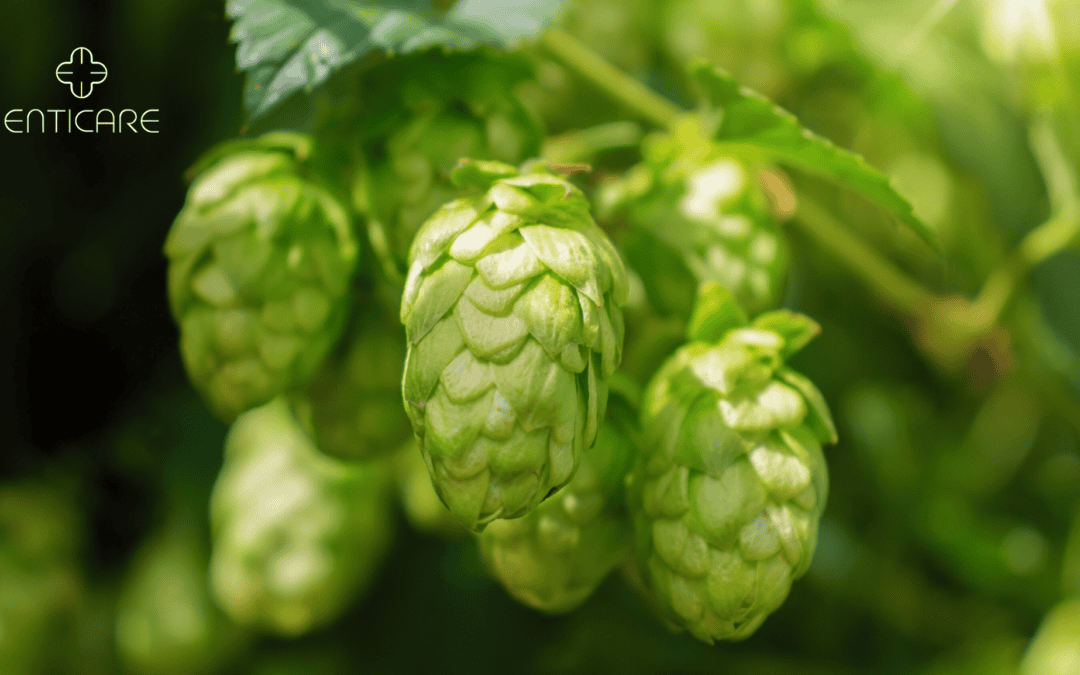Hops give beer its signature bitterness and aroma, but for some, this seemingly harmless ingredient could trigger serious health concerns, including beer allergy. While beer enthusiasts often savor the flavors brought out by hops, others might unknowingly suffer from hops allergies. If you’ve ever felt discomfort after drinking beer, this blog will help you determine if the culprit is a hops allergy and how to manage it effectively, considering factors like hop sensitivity.
What Are Hops and Why Are They Used in Beer?
- A Key Ingredient in Brewing: Hops are the cone-shaped flowers from the Humulus lupulus plant. Brewers use them to balance beer’s sweetness with bitterness, add aroma, and preserve the beverage. Without hops, beer would lack its distinctive taste and character.
- Different Types of Hops and Their Impact: Various hop varieties exist, each contributing unique bitterness and aroma. Some bring citrus notes, while others offer pine or floral undertones. The diverse profile can appeal to beer lovers but pose problems for those sensitive to certain hop compounds.
- Hops Beyond Beer: Hops are also featured in herbal teas, supplements, and skincare products. Even if you don’t drink beer, exposure to hops might still occur in everyday products.
Recognizing Hops Allergic Reaction Symptoms
- Immediate Reactions: Those experiencing allergic reactions to hops may encounter sneezing, runny nose, nasal congestion, itchy eyes, and skin rashes within minutes of drinking beer. These symptoms closely resemble typical allergic reactions, which can easily be mistaken for seasonal allergies.
- Gastrointestinal Discomfort: Some people may experience nausea, vomiting, or diarrhea after consuming hops. These symptoms usually manifest within a few hours and might escalate to severe symptoms depending on the quantity consumed.
- Severe Allergic Reactions: In rare cases, hop allergies can lead to anaphylaxis, a life-threatening condition that requires immediate medical attention. Symptoms include difficulty breathing, rapid pulse, respiratory symptoms, and loss of consciousness.
Why Hops Allergies Occur: The Immune System Response
Hops Sensitization: An allergy to hops often stems from an immune system response to specific hop allergens within the plant. The immune system misidentifies these proteins as harmful, leading to an allergic response.
Severe Allergic Reactions: In rare cases, hop allergies can lead to more severe reactions, such as anaphylaxis, a life-threatening condition that requires immediate medical attention.
Cross-Reactivity with Other Plants: People allergic to hops might also react to related plants like cannabis or mulberries due to similar protein structures. Understanding these connections can help identify triggers and avoid unexpected allergic reactions.
Genetic Predisposition: Some individuals may inherit a sensitivity to hops or develop it after repeated exposure. A family history of allergies often increases the likelihood of such conditions.
Testing and Diagnosing a Hops Allergy: The Skin Prick Test
Consulting an Allergist: If you suspect a hops allergy, which is a type of food allergy, consult an allergist who can conduct specific allergy testing to confirm it. Skin prick tests or blood tests help determine if hops are indeed the trigger behind your symptoms.
Elimination Diets: Some healthcare providers recommend temporarily eliminating hops from your diet and then gradually reintroducing them under supervision to observe any adverse reactions. This method identifies triggers in a controlled environment.
Cross-Allergy Awareness: Testing should also account for related allergies. Knowing whether your hops sensitivity ties into broader allergies can guide more effective treatment and lifestyle adjustments.
Managing Hops Allergies and Alternatives to Consider
- Avoiding Beer and Hops Products: The most straightforward way to prevent an allergic reaction is to avoid consuming beer and products containing hops. Opt for alternative beverages like wine, cider, or gluten-free beer alternatives.
- Medical Treatment Options: If avoidance isn’t feasible or accidental exposure occurs, over-the-counter antihistamines help manage mild symptoms, while carrying an epinephrine auto-injector could be lifesaving in case of severe reactions.
- Exploring Non-Hops Beers: Some breweries specialize in creating hop-free beers using alternative ingredients like herbs, spices, and fruits for flavoring. Exploring these options allows you to enjoy beer-like beverages without risking your health.
Conclusion: Don’t Let Hops Allergies Stop You from Enjoying Life
Understanding a hops allergy empowers you to make informed decisions about what you consume. Whether you need testing or ongoing allergy management, professional guidance ensures you stay safe. If you suspect a hops allergy or have any allergy concerns, don’t hesitate to consult an expert. Schedule an appointment with our experienced allergists today by visiting Enticare.

